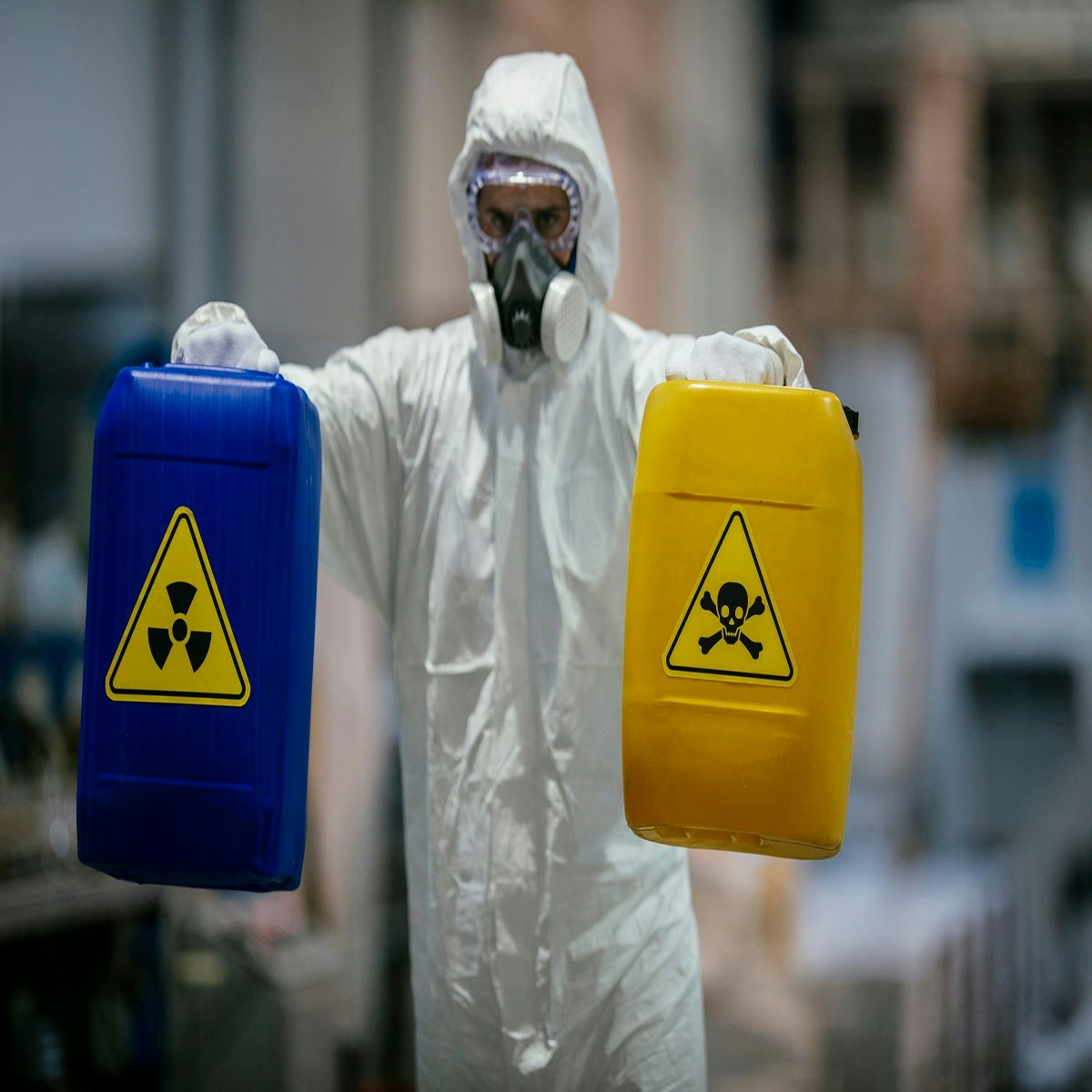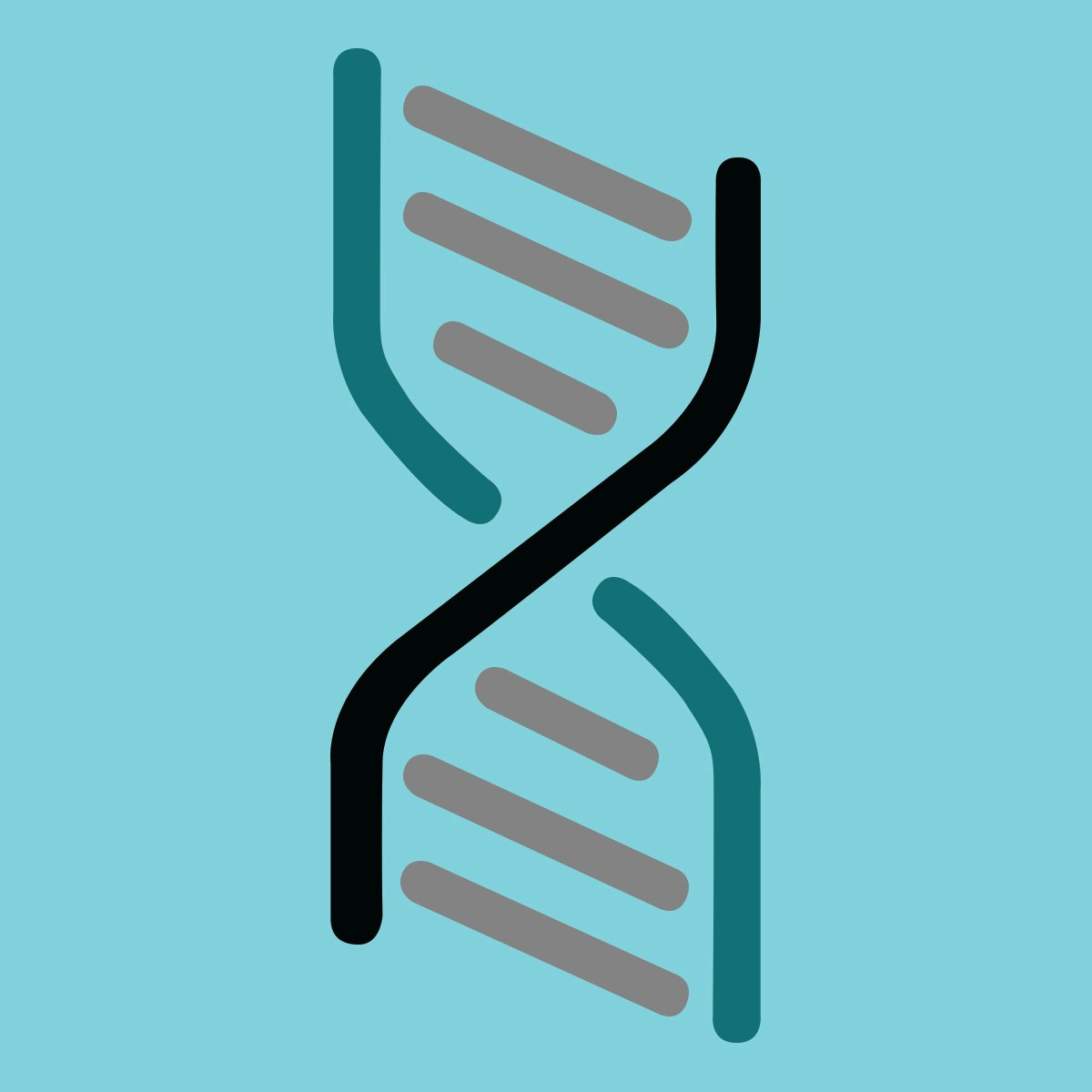Pharmacologist
A Career Guide to Pharmacology
Pharmacology is the branch of science concerned with the study of drugs and their effects on living systems. A pharmacologist investigates how drugs interact with biological organisms, from the molecular level to the whole body, with the aim of understanding drug actions, improving their effectiveness, and developing new medicines to combat diseases. This involves examining how drugs are discovered, developed, tested, and regulated.
Working as a pharmacologist can be deeply engaging. You might find excitement in the process of drug discovery, searching for novel compounds that could treat debilitating conditions. Alternatively, the challenge of understanding the complex interactions between a drug and the intricate machinery of the human body might capture your interest. Furthermore, the potential to contribute to public health by ensuring drug safety and efficacy provides a strong sense of purpose.
What Pharmacologists Do
Defining the Role: Pharmacologist vs. Pharmacist vs. Pharmaceutical Scientist
It's common for confusion to arise between the roles of pharmacologists, pharmacists, and pharmaceutical scientists, as their work often intersects within the broader field of medicine and drug development. However, their focuses and responsibilities differ significantly. Understanding these distinctions is crucial when considering a career path.
Pharmacologists are primarily researchers focused on understanding how drugs work. They study the mechanisms of drug action, how the body processes drugs (pharmacokinetics), and the drug's effects on the body (pharmacodynamics). Their work forms the scientific foundation for drug development and therapeutic use, often taking place in academic labs, government research institutions, or pharmaceutical/biotech companies.
Pharmacists, in contrast, are patient-facing healthcare professionals. They dispense medications prescribed by doctors, counsel patients on safe and effective drug use, monitor patient health and progress, and manage medication therapies. Their education (typically a Doctor of Pharmacy, or PharmD) and training emphasize clinical practice and patient care. A degree in pharmacy is not the typical path to becoming a research-focused pharmacologist.
Pharmaceutical scientists often work alongside pharmacologists, but their scope can be broader within the drug development process. They might focus on drug discovery, chemistry (designing and synthesizing new drug molecules), formulation (turning a drug into a pill or injectable), or analytical testing. While pharmacologists delve deep into the biological interactions, pharmaceutical scientists may concentrate more on the chemical, physical, and manufacturing aspects of drugs.
Core Objectives and Daily Tasks
The central goal of pharmacology is to discover and develop safe and effective drugs while understanding their mechanisms of action. Pharmacologists design and execute experiments to investigate how potential drug candidates interact with biological systems. This involves studying effects at the molecular, cellular, tissue, and whole-organism levels.
A significant part of their work involves preclinical research – studies conducted before a drug is tested in humans. This includes evaluating a drug's potential benefits (efficacy) and its potential harms (toxicity). They utilize various models, including cell cultures (in vitro) and animal studies (in vivo), to predict how a drug might behave in humans.
Pharmacologists analyze complex data sets generated from these experiments, interpreting results to understand dose-response relationships, identify potential side effects, and determine the optimal way a drug might be used. They often work collaboratively in teams that include chemists, biologists, clinicians, and regulatory specialists to move promising drug candidates through the development pipeline.
A Brief History of Pharmacology
The roots of pharmacology stretch back to ancient civilizations, where natural substances like plants and minerals were used for medicinal purposes. However, pharmacology as a distinct scientific discipline emerged much later. The 19th century saw key advancements, particularly with the isolation of active compounds from plants (like morphine from opium) and the rise of experimental physiology and chemistry.
Oswald Schmiedeberg is often considered the "father of modern pharmacology." In the late 19th century, he established the first institute of pharmacology in Germany and emphasized the importance of understanding the relationship between a drug's chemical structure and its biological effects. His work laid the groundwork for systematic drug research.
The 20th century witnessed explosive growth in the field, driven by breakthroughs in chemistry, biology, and medicine. The discovery of antibiotics like penicillin, the development of vaccines, and the creation of drugs to treat chronic conditions like hypertension and diabetes revolutionized healthcare. This era also saw the establishment of regulatory agencies like the U.S. Food and Drug Administration (FDA) to ensure drug safety and efficacy, further shaping the practice of pharmacology.
Key Responsibilities of Pharmacologists
Designing and Conducting Preclinical Studies
A primary responsibility for many pharmacologists, particularly those in drug discovery and development, is designing and overseeing preclinical studies. These studies are essential steps required before a potential drug can be tested in humans. They aim to gather preliminary data on a drug's efficacy, toxicity, and how it's processed by the body.
Designing these studies requires a deep understanding of the disease target, the drug's proposed mechanism, and appropriate experimental models. Pharmacologists select relevant in vitro (cell-based) and in vivo (animal) models that can best predict human responses. They determine appropriate dosages, routes of administration, and endpoints to measure.
Conducting these studies involves meticulous laboratory work, careful data collection, and adherence to strict protocols and ethical guidelines, especially when working with animals. The results inform critical decisions about whether a drug candidate is promising enough to advance to clinical trials in humans.
These courses explore preclinical safety assessments and related methodologies.
Analyzing Drug Interactions and Mechanisms
Pharmacologists investigate the intricate details of how drugs interact with biological systems. This involves studying pharmacodynamics (what the drug does to the body) and pharmacokinetics (what the body does to the drug). Understanding these interactions is crucial for determining effectiveness and safety.
Pharmacodynamic studies explore how a drug binds to its target (like a receptor or enzyme) and the resulting biological effects. This helps elucidate the drug's mechanism of action. Pharmacokinetic studies examine how a drug is absorbed, distributed throughout the body, metabolized (broken down), and excreted (ADME). This information helps determine appropriate dosing regimens.
Analyzing these interactions often involves sophisticated techniques and data analysis. The goal is to build a comprehensive profile of the drug's behavior, identifying potential interactions with other drugs or food, and understanding variability in response among different individuals.
This course delves into the study of small molecule signaling actions.
Toxicology Assessments and Risk Analysis
Ensuring drug safety is paramount, and toxicology is a critical sub-discipline within pharmacology. Pharmacologists specializing in toxicology assess the potential harmful effects of drugs and chemicals. They design studies to identify potential toxicities, determine safe dosage levels, and understand the mechanisms underlying adverse effects.
This involves a range of tests, from short-term acute toxicity studies to long-term chronic toxicity and carcinogenicity studies. Toxicologists evaluate effects on various organ systems and look for potential risks like reproductive toxicity or genetic damage (mutagenicity). Their findings are essential for risk assessment – weighing the potential benefits of a drug against its potential risks.
This risk analysis informs regulatory decisions about drug approval and helps define safe usage guidelines for patients and healthcare providers. Toxicologists may work in pharmaceutical companies, regulatory agencies, or environmental health organizations.
This course provides insights into chemical hazards and toxicology.
Collaboration with Cross-Functional Teams
Drug development is rarely a solo endeavor. Pharmacologists work extensively as part of multidisciplinary teams. Effective collaboration and communication are essential skills for success in this field.
They interact closely with medicinal chemists who synthesize drug compounds, biologists who provide insights into disease mechanisms, clinicians who design and run human trials, statisticians who help analyze complex data, and regulatory affairs specialists who navigate the drug approval process. Each discipline brings unique expertise to the table.
Pharmacologists must be able to clearly communicate their findings and interpretations to team members from different backgrounds. They contribute their expertise on drug action and safety to guide project decisions, troubleshoot issues, and ensure the overall goals of the drug development program are met.
Formal Education Pathways
Pre-University Preparation
A strong foundation in science and mathematics during high school is essential for pursuing a career in pharmacology. Prospective students should focus on courses in biology, chemistry, physics, and mathematics (including calculus). These subjects provide the fundamental knowledge needed for advanced studies.
Developing strong analytical and problem-solving skills is also crucial. Participation in science fairs, research projects, or science clubs can provide valuable early exposure to scientific inquiry and laboratory practices. Good communication skills, both written and verbal, are also important for future success in a collaborative research environment.
While specific requirements vary, aiming for high grades in relevant subjects will strengthen university applications for competitive science programs. Some resources suggest needing strong GCSEs (or equivalent) in English, Maths, and Science, followed by A-levels (or equivalent) in Biology and Chemistry.
Undergraduate Degrees
The typical starting point for a pharmacologist is a bachelor's degree in a relevant scientific field. While a specific pharmacology degree is ideal, related majors provide excellent preparation. Common undergraduate degrees include pharmacology, biochemistry, biology, biomedical science, chemistry, physiology, or neuroscience.
These programs provide foundational knowledge in biological processes, chemical principles, and research methodologies. Coursework often includes general and organic chemistry, biochemistry, molecular biology, cell biology, genetics, physiology, and statistics. Laboratory courses are a critical component, offering hands-on experience with experimental techniques.
Students should seek opportunities for undergraduate research experiences, such as working in a professor's lab or participating in summer research programs. This provides practical skills, exposure to the research environment, and valuable connections for future graduate studies or employment.
These online courses cover foundational topics relevant to pharmacology undergraduates.
Graduate Requirements: MSc/PhD Programs
While some entry-level technical roles might be accessible with a bachelor's degree, progressing to independent research or leadership positions in pharmacology typically requires a graduate degree. A Master of Science (MSc) or, more commonly, a Doctor of Philosophy (PhD) is the standard.
Master's programs usually take 1-3 years and provide more specialized knowledge and research experience than a bachelor's degree. They can be a stepping stone to a PhD or prepare students for certain roles in industry or government. However, for a career focused on leading research initiatives, a PhD is often necessary.
PhD programs in pharmacology or related biomedical sciences typically take 4-6 years beyond the bachelor's degree. These programs involve advanced coursework, but the primary focus is on conducting original research culminating in a doctoral dissertation. Students develop deep expertise in a specific area of pharmacology, master advanced research techniques, and hone critical thinking and communication skills.
These books are foundational texts often used in pharmacology education.
Specialized Certifications
While not always mandatory for practice (unlike licensing for pharmacists), specialized certifications can enhance a pharmacologist's credentials and demonstrate expertise in specific areas. These are often voluntary and pursued after obtaining significant experience and typically a doctoral degree.
One prominent example is certification by the American Board of Clinical Pharmacology (ABCP). This requires a doctoral degree (PhD, MD, PharmD, DO), specific training or experience in clinical pharmacology, and passing a rigorous examination. It signifies a high level of competence in the clinical application of pharmacological principles.
Other certifications might exist in sub-specialties like toxicology (e.g., Diplomate of the American Board of Toxicology - DABT). These certifications can be valuable for career advancement, particularly for roles requiring specialized knowledge in regulatory affairs, clinical trial oversight, or safety assessment.
Career Progression in Pharmacology
Entry-Level Roles
With a bachelor's or master's degree in pharmacology or a related science, individuals can find entry-level positions, often supporting senior researchers. Common titles include Research Assistant, Laboratory Technician, or Junior Scientist. These roles typically involve performing experiments, collecting and organizing data, maintaining lab equipment, and managing supplies.
These positions provide invaluable hands-on experience with laboratory techniques and the research process. They offer an opportunity to learn from experienced scientists and contribute to ongoing research projects. While advancement may be limited without further education, these roles form a crucial part of the research ecosystem and can be a springboard to graduate studies.
Some pharmaceutical companies offer graduate training schemes or apprenticeships that provide structured entry into the industry, sometimes combining work with further study opportunities.
Mid-Career Paths
After gaining experience and often obtaining a PhD, pharmacologists can progress to more independent and responsible roles. Mid-career positions might include Research Scientist, Senior Scientist, Project Lead, or Study Director. In these roles, individuals take greater ownership of research projects, design experiments, analyze and interpret data, and contribute to research strategy.
They may begin supervising junior staff or technicians and are expected to present findings at conferences and contribute to scientific publications. Some pharmacologists may specialize further, focusing on areas like pharmacokinetics/pharmacodynamics (PK/PD) modeling, biomarker development, or specific therapeutic areas (e.g., oncology, neuroscience).
Another mid-career path is in regulatory affairs, where pharmacologists use their scientific expertise to help navigate the complex process of getting drugs approved by agencies like the FDA or EMA. This involves preparing submission documents and interacting with regulatory authorities.
Senior Positions
With significant experience and a proven track record of success, pharmacologists can advance to senior leadership roles. In academia, this often means becoming a Principal Investigator (PI), leading an independent research lab, securing grant funding, mentoring students and postdoctoral fellows, and publishing high-impact research. Senior academics may also hold positions like Professor or Department Chair.
In industry, senior roles include Principal Scientist, Research Fellow, Group Leader, Associate Director, or Director of Research & Development (R&D). These positions involve setting research strategy, managing large teams and budgets, overseeing multiple projects, and making critical decisions about the drug development pipeline. They require strong scientific expertise combined with leadership, management, and strategic thinking skills.
Senior pharmacologists play a key role in shaping the direction of research within their organizations and contribute significantly to the discovery and development of new therapies.
Alternative Tracks: Academia vs. Industry vs. Government
Pharmacologists have diverse career options across different sectors. Academia involves research and teaching at universities or research institutes. The focus is often on fundamental research to understand basic biological mechanisms and disease processes, driven by grant funding. It offers intellectual freedom but can involve pressure to secure funding and publish.
Industry positions are typically found in pharmaceutical and biotechnology companies. The focus is primarily on applied research aimed at discovering, developing, and bringing new drugs to market. The environment is often faster-paced and more goal-oriented, with potentially higher salaries but potentially less individual freedom in research direction compared to academia.
Government agencies, such as the Food and Drug Administration (FDA), the National Institutes of Health (NIH), or the Environmental Protection Agency (EPA), also employ pharmacologists. Roles can involve reviewing drug applications, setting health policies, overseeing research funding, or conducting research related to public health and safety. These positions often offer stability and the opportunity to impact public policy.
Other potential tracks include science writing, patent law (with additional legal training), consulting, or working for non-profit research organizations.
Industry Applications of Pharmacological Expertise
Pharmaceutical R&D Pipelines
The pharmaceutical industry is the largest employer of pharmacologists. They are integral to the Research & Development (R&D) pipeline, the complex process of discovering, developing, and bringing new drugs to market. Pharmacologists contribute at nearly every stage.
In early discovery, they help identify and validate potential drug targets and screen compounds for activity. During preclinical development, they conduct crucial studies to assess efficacy, safety, pharmacokinetics, and pharmacodynamics. Their expertise guides the selection of drug candidates for clinical trials.
Even during clinical development (human testing), pharmacologists help design studies, interpret clinical data related to drug effects and dosing, and contribute to understanding how the drug works in patients. Their work is fundamental to building the scientific case for a new drug's approval and use.
These courses offer insights into the drug discovery and development process.
Regulatory Agencies and Drug Approval
Governmental regulatory agencies, such as the U.S. Food and Drug Administration (FDA) and the European Medicines Agency (EMA), employ pharmacologists as reviewers and scientists. Their role is critical in evaluating the safety and efficacy data submitted by pharmaceutical companies seeking approval to market new drugs.
Pharmacology reviewers scrutinize preclinical (animal) and clinical (human) data, focusing on pharmacokinetics, pharmacodynamics, and toxicology findings. They assess the scientific rigor of the studies, evaluate the benefit-risk profile of the drug, and contribute to the decision of whether a drug should be approved for public use.
These pharmacologists play a vital gatekeeping role, ensuring that medicines available to patients meet stringent standards for safety and effectiveness. They also contribute to developing guidelines and regulations that shape the future of drug development.
Biotech Startups and Innovation Hubs
Beyond large pharmaceutical companies, the biotechnology sector offers exciting opportunities for pharmacologists. Biotech startups are often focused on cutting-edge science and novel therapeutic approaches, such as gene therapy, antibody-based drugs, or RNA therapeutics. These smaller, more agile companies can provide a dynamic and innovative environment.
Pharmacologists in biotech startups may wear multiple hats, contributing to various aspects of research and development. The work can be high-risk but also high-reward, offering the chance to be involved in groundbreaking science from the ground floor. Innovation hubs and incubators often foster collaboration between academic researchers and biotech entrepreneurs, creating vibrant ecosystems for pharmacological research.
Environmental and Forensic Toxicology
The principles of pharmacology extend beyond drug development. Toxicologists, who often have pharmacology backgrounds, apply their expertise to assess the harmful effects of chemicals in various contexts. Environmental toxicologists study the impact of pollutants and environmental contaminants on ecosystems and human health, working for government agencies, consulting firms, or industry.
Forensic toxicologists analyze biological samples (like blood or tissue) for the presence of drugs, alcohol, poisons, or other chemicals to aid legal investigations. They work in crime labs or medical examiner's offices, providing critical evidence for criminal and civil cases. Both fields require a strong understanding of how chemical substances interact with biological systems, a core tenet of pharmacology.
Essential Skills for Modern Pharmacologists
Laboratory Techniques
Proficiency in a wide range of laboratory techniques is fundamental for most pharmacologists, especially those in research roles. These skills are necessary for conducting experiments to investigate drug action and effects. Techniques vary depending on the specific area of research but often span molecular biology, cell biology, biochemistry, and physiology.
Common techniques include cell culture, immunoassays (like ELISA or Western blotting), microscopy, flow cytometry, and various molecular biology methods (PCR, cloning). Experience with in vivo research may involve animal handling, dosing, surgery, and behavioral testing, always adhering to strict ethical guidelines.
Expertise in analytical techniques like High-Performance Liquid Chromatography (HPLC) and Mass Spectrometry is often crucial for measuring drug concentrations in biological samples (pharmacokinetics) or identifying metabolites.
Computational Skills
As pharmacology becomes increasingly data-driven, computational skills are growing in importance. Pharmacologists utilize software for data analysis, statistical interpretation, and visualization. Familiarity with statistical software packages (like R or SAS) is often required.
Specialized computational approaches are also widely used. Pharmacokinetic/pharmacodynamic (PK/PD) modeling uses mathematical models to describe and predict the relationship between drug dosage, concentration in the body, and therapeutic effect. This helps optimize dosing regimens and design clinical trials.
Bioinformatics skills are valuable for analyzing large biological datasets, such as genomic or proteomic data, to identify drug targets or understand mechanisms of action. Familiarity with bioinformatics tools and databases is becoming increasingly essential in many areas of pharmacological research.
Regulatory Compliance Knowledge
Pharmacologists working in drug development, whether in industry or academia (particularly in translational research), must have a solid understanding of regulatory requirements. Drug development is a highly regulated process, and adherence to guidelines set by agencies like the FDA and EMA is mandatory.
This includes knowledge of Good Laboratory Practice (GLP) for preclinical studies and Good Clinical Practice (GCP) for human trials. Understanding the requirements for study design, data collection, documentation, and reporting is crucial for ensuring data integrity and regulatory acceptance.
Pharmacologists involved in preparing regulatory submissions (like Investigational New Drug applications or New Drug Applications) need detailed knowledge of the specific data and documentation required by authorities. Staying updated on evolving regulations is an ongoing necessity in this field.
Communication and Collaboration Skills
Beyond technical expertise, strong communication and teamwork skills are vital. Pharmacologists must effectively communicate complex scientific concepts to diverse audiences, including colleagues, collaborators, management, regulatory agencies, and sometimes the public.
This involves writing clear and concise research reports, protocols, manuscripts for publication, and regulatory documents. Oral presentation skills are needed for presenting data at lab meetings, departmental seminars, scientific conferences, and regulatory meetings.
As research is highly collaborative, the ability to work effectively within multidisciplinary teams is essential. This requires active listening, providing constructive feedback, and contributing positively to team dynamics to achieve shared research goals.
Emerging Trends in Pharmacology
Personalized Medicine and Pharmacogenomics
One of the most exciting trends is the move towards personalized medicine, tailoring drug treatments to individual patients based on their unique characteristics. Pharmacogenomics, a key component of this, studies how an individual's genetic makeup influences their response to drugs. This includes variations in drug metabolism, efficacy, and susceptibility to adverse effects.
Pharmacologists are involved in identifying genetic markers that predict drug response and developing diagnostic tests to guide treatment decisions. This aims to maximize drug effectiveness while minimizing side effects, leading to safer and more targeted therapies. Research in this area is rapidly advancing, fueled by progress in genomics and bioinformatics.
Understanding genetic factors is crucial for developing truly personalized therapies.
AI-Driven Drug Discovery Platforms
Artificial intelligence (AI) and machine learning (ML) are revolutionizing drug discovery and development. These technologies can analyze vast datasets, identify potential drug targets, predict molecular properties, screen virtual compound libraries, and even design novel drug candidates much faster than traditional methods.
AI is being applied to various stages, from identifying patterns in biological data to optimizing clinical trial design and predicting patient responses. Several sources indicate AI is significantly accelerating timelines and reducing costs in preclinical discovery, with some estimates suggesting AI could drive 30% of new drug discoveries by 2025. Pharma companies and AI-first startups are investing heavily in these technologies.
Pharmacologists increasingly need to understand and potentially utilize these computational tools. Collaboration between pharmacologists and data scientists is becoming more common to leverage AI effectively in the R&D process. You can browse relevant courses in Artificial Intelligence on OpenCourser.
Global Health Challenges
Pharmacology plays a critical role in addressing major global health challenges. Developing new treatments for infectious diseases remains a priority, particularly in light of antimicrobial resistance (AMR) – the growing problem of bacteria and other microbes becoming resistant to existing drugs. Pharmacologists are searching for novel antibiotics and alternative approaches.
Pandemic preparedness is another key area. The rapid development of vaccines and treatments during the COVID-19 pandemic highlighted the importance of pharmacological research and adaptable drug development platforms. Ongoing research focuses on broad-spectrum antivirals and vaccine technologies to combat future pandemics.
Pharmacologists also contribute to developing affordable and effective treatments for diseases prevalent in low- and middle-income countries, often through collaborations with global health organizations.
Sustainability in Pharmaceutical Manufacturing
The pharmaceutical industry is increasingly focusing on sustainability and reducing its environmental footprint. This includes developing greener manufacturing processes, reducing waste, minimizing the use of hazardous solvents, and improving energy efficiency. Pharmacologists can contribute to these efforts.
This might involve research into more sustainable chemical synthesis routes or developing drug formulations that are more environmentally friendly. There is also growing attention on the environmental impact of pharmaceutical residues in water systems and efforts to design drugs that degrade more readily after use.
Regulatory pressures and corporate responsibility initiatives are driving this trend, creating opportunities for pharmacologists interested in green chemistry and sustainable practices within the pharmaceutical sector. Some reports highlight this as a key trend, focusing on reducing waste and adopting eco-conscious options, like environmentally friendly propellants.
Ethical Considerations for Pharmacologists
Animal Testing Controversies
The use of animals in research is a significant ethical consideration in pharmacology. Animal models are currently essential for understanding complex biological systems and evaluating the safety and efficacy of potential drugs before human testing. However, this practice raises ethical concerns regarding animal welfare.
Pharmacologists are bound by strict regulations and ethical guidelines (like the 3Rs: Replacement, Reduction, Refinement) aimed at minimizing animal use and suffering. There is ongoing research into developing alternative methods, such as advanced cell cultures, organ-on-a-chip technologies, and computer modeling, to replace or reduce reliance on animal testing.
Navigating the ethical complexities of animal research requires careful consideration, transparency, and a commitment to upholding the highest standards of animal welfare while advancing medical science.
Clinical Trial Equity and Inclusion
Ensuring diversity and equity in clinical trials is a critical ethical imperative. Historically, many clinical trials have underrepresented women, ethnic minorities, and older adults. This lack of diversity can limit the generalizability of trial results and lead to disparities in treatment outcomes.
Pharmacologists involved in clinical trial design and interpretation have a responsibility to advocate for and implement strategies to enhance participant diversity. This includes addressing barriers to participation, ensuring informed consent is culturally appropriate, and analyzing data to understand potential differences in drug response across demographic groups.
Promoting equity in clinical research ensures that new medicines are safe and effective for all populations who might use them.
Conflict of Interest in Research
Pharmacological research, particularly when funded by industry, can be susceptible to conflicts of interest (COI). A COI arises when personal interests (financial or otherwise) could potentially bias professional judgment or actions. For example, a researcher's financial ties to a company whose drug they are studying could influence how they design, conduct, or report their research.
Managing COIs is crucial for maintaining scientific integrity and public trust. This involves transparency through disclosure of financial relationships, oversight by institutional review boards (IRBs) and COI committees, and sometimes implementing management plans to mitigate potential bias.
Pharmacologists must be aware of potential conflicts and adhere to institutional and professional guidelines for disclosure and management to ensure objectivity in their research.
Responsible Publication Practices
Ethical conduct extends to the publication of research findings. Pharmacologists have a responsibility to report their results accurately, completely, and honestly. This includes acknowledging contributions appropriately (authorship), citing prior work correctly, and avoiding practices like data fabrication, falsification, or plagiarism.
Selective reporting of positive results while omitting negative or inconclusive findings can distort the scientific record and lead to flawed conclusions about a drug's efficacy or safety. Responsible publication practices demand transparency and adherence to established ethical guidelines set by journals and professional societies.
Peer review is a cornerstone of scientific publishing, and pharmacologists often participate as reviewers, upholding standards of rigor and fairness in evaluating the work of others.
Online Learning and Skill Development
Foundational vs. Specialized Course Offerings
Online learning platforms like OpenCourser offer a wealth of opportunities for individuals interested in pharmacology, whether building foundational knowledge or acquiring specialized skills. Foundational courses often cover core concepts in biology, chemistry, biochemistry, and introductory pharmacology, suitable for undergraduates or those exploring the field.
Specialized online courses delve deeper into specific areas like drug discovery, toxicology, pharmacokinetics, clinical trial design, pharmacogenomics, or regulatory affairs. These can be valuable for graduate students supplementing their studies, professionals seeking to update their knowledge, or individuals looking to pivot into a specific niche within pharmacology.
OpenCourser makes it easy to browse courses in Health & Medicine and related fields, compare syllabi, and find options that match your learning goals and current knowledge level.
These courses cover introductory and specific aspects of pharmacology and drug discovery.
Virtual Lab Simulations and Their Limitations
While hands-on laboratory experience is crucial in pharmacology, online platforms increasingly offer virtual lab simulations. These tools can help students understand experimental procedures, practice data analysis, and learn laboratory safety principles in a risk-free environment. They can be excellent supplements to traditional labs or provide exposure when physical lab access is limited.
However, it's important to recognize the limitations of virtual labs. They cannot fully replicate the tactile experience, troubleshooting challenges, and nuanced observations inherent in real-world laboratory work. Developing fine motor skills for techniques like pipetting or dissection requires hands-on practice.
Online simulations are best viewed as complementary tools that reinforce concepts and prepare learners for physical lab sessions, rather than complete replacements for hands-on training, especially for research-intensive roles.
Building Research Literacy Through Digital Resources
Beyond formal courses, the digital landscape offers vast resources for developing research literacy – the ability to find, evaluate, and understand scientific information. Pharmacologists must stay current with the latest research in their field. Online databases like PubMed allow access to millions of scientific articles.
Learning how to critically evaluate research papers, understand study methodologies, and interpret statistical data are essential skills. Online tutorials, webinars from scientific societies, and open-access publications can help develop these abilities. Following reputable science news outlets and blogs can also provide context on current research trends.
Platforms like OpenCourser can also guide learners towards relevant scientific literature and authoritative texts through features like the "Reading List" on course pages.
These books are standard references in the field, crucial for research literacy.
Combining Online Learning with Hands-on Experience
For aspiring pharmacologists, the most effective approach often involves blending online learning with practical, hands-on experience. Online courses can efficiently deliver foundational knowledge, theoretical concepts, and specialized information at one's own pace.
This theoretical learning should be complemented by seeking real-world experiences through internships, volunteering in research labs, or entry-level technician roles. This practical exposure allows learners to apply theoretical knowledge, develop essential laboratory skills, understand the workflow of a research environment, and build professional networks.
This combination allows learners to build a strong theoretical base online while gaining the indispensable practical skills required for a successful career in pharmacology. The OpenCourser Learner's Guide offers tips on structuring self-learning paths and integrating different learning modalities.
Frequently Asked Questions (Career Focus)
Can I become a pharmacologist without a PhD?
While a PhD is often considered the standard for independent research roles, particularly in academia and senior industry positions, it is possible to work in pharmacology-related fields without one. A bachelor's or master's degree can qualify individuals for entry-level or mid-level roles such as research assistant, laboratory technician, or associate scientist.
These roles often involve supporting research activities under the direction of PhD-level scientists. Some sources suggest a Master's degree is typically required, while others note some non-graduate routes or apprenticeships might exist, particularly for technical support roles. Advancement to leadership or independent research roles usually requires a doctorate (PhD, MD, or PharmD with significant research experience).
Ultimately, the necessity of a PhD depends on your specific career goals within the broad field of pharmacology. Research-intensive and leadership paths generally demand it, while technical support and some specialized roles may be accessible with a Master's or potentially a Bachelor's degree plus experience.
How competitive are industry positions?
Positions in the pharmaceutical and biotechnology industries can be competitive, especially for desirable roles at leading companies or in cutting-edge research areas. Competition exists at all levels, from entry-level positions to senior leadership roles. Candidates with advanced degrees (PhD), relevant postdoctoral experience, specialized skills (e.g., computational modeling, specific assay development), and a strong publication record often have an advantage.
Networking, internships, and gaining practical experience during studies can significantly enhance competitiveness. The level of competition can also vary depending on the specific geographic location, the company's size and reputation, and the overall economic climate affecting R&D funding.
While competitive, the field continues to need skilled pharmacologists, driven by ongoing needs for new therapies and advancements in biomedical science.
What is the career longevity in this rapidly evolving field?
Pharmacology is a dynamic field constantly evolving with new scientific discoveries, technologies (like AI and genomics), and changing regulatory landscapes. This rapid evolution means that lifelong learning and adaptability are crucial for career longevity.
Pharmacologists must continuously update their knowledge and skills to remain relevant. This might involve attending conferences, reading scientific literature, taking continuing education courses (including online options), and embracing new methodologies and technologies. Those who are adaptable and committed to ongoing learning are well-positioned for long and successful careers.
While specific techniques or research areas may change, the fundamental principles of pharmacology and the need to understand drug action remain constant. This provides a solid foundation upon which to build and adapt throughout one's career.
Are there remote work possibilities in pharmacology?
Traditionally, pharmacology, especially roles involving bench research, requires significant on-site presence in laboratories. Hands-on experimental work cannot typically be done remotely. However, the field is evolving, and some aspects of the work offer potential for remote or hybrid arrangements.
Roles focused on computational pharmacology, bioinformatics, data analysis, scientific writing, regulatory affairs, or project management may offer more flexibility for remote work. The rise of computational tools and the increasing volume of data analysis needed in drug development contribute to this trend. However, roles primarily focused on laboratory experimentation will likely continue to require substantial on-site work.
The availability of remote work depends heavily on the specific role, the company culture, and the nature of the tasks involved.
What are the global employment opportunities and mobility?
Pharmacology is a global field, with research institutions, pharmaceutical companies, and regulatory agencies located worldwide. This creates opportunities for international employment and collaboration. Major hubs for pharmaceutical R&D exist in North America, Europe, and parts of Asia.
Mobility often depends on qualifications, experience, and specialization. A PhD from a reputable institution and experience in high-demand areas can facilitate international moves. However, visa requirements, language barriers, and potential differences in regulatory systems or licensing/certification standards need to be considered.
Attending international conferences and building a global professional network can enhance opportunities for international careers or collaborations.
Can one transition between therapeutic areas?
Yes, it is possible for pharmacologists to transition between different therapeutic areas (e.g., from oncology to neuroscience, or cardiovascular to infectious diseases) during their careers. While deep expertise in one area is valuable, the fundamental principles of pharmacology and core research skills are often transferable.
Transitioning may require acquiring new knowledge specific to the disease area, understanding different biological pathways, and learning relevant experimental models or techniques. This often happens organically as research projects evolve or when moving to new roles or organizations.
A strong foundation in core pharmacological principles, coupled with adaptability and a willingness to learn, facilitates movement between different areas of therapeutic focus.
Concluding Thoughts
Embarking on a career as a pharmacologist is a commitment to rigorous scientific inquiry and a potential pathway to contributing significantly to human health. It demands extensive education, strong analytical skills, and a dedication to lifelong learning in a rapidly advancing field. The work involves understanding the intricate interactions between drugs and living systems, contributing to the discovery of new medicines, and ensuring their safe and effective use.
While the path requires dedication and often involves advanced degrees, the rewards can be substantial – both intellectually and in terms of societal impact. Whether your passion lies in unraveling molecular mechanisms in an academic lab, driving drug development in the fast-paced pharmaceutical industry, or safeguarding public health within a regulatory agency, pharmacology offers diverse and meaningful career opportunities. If you possess a strong aptitude for science, a curious mind, and a desire to make a difference in medicine, exploring pharmacology further could be a truly rewarding endeavor.






















